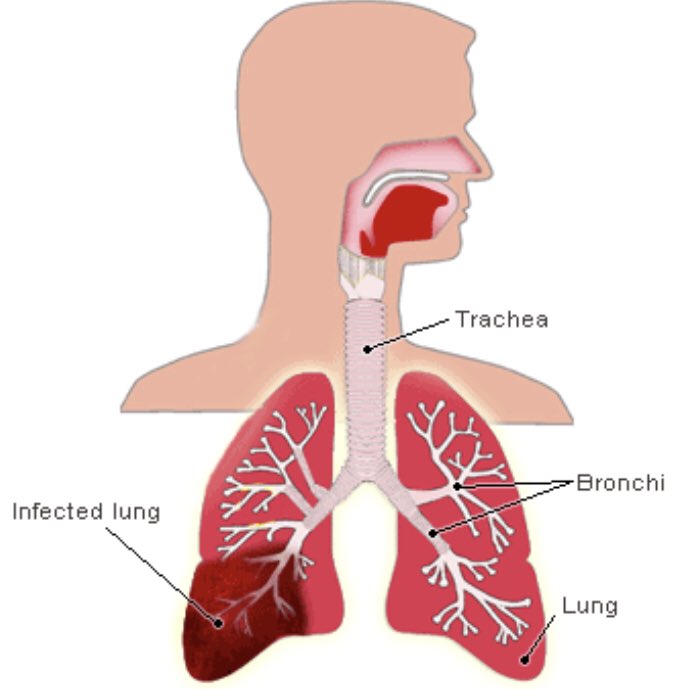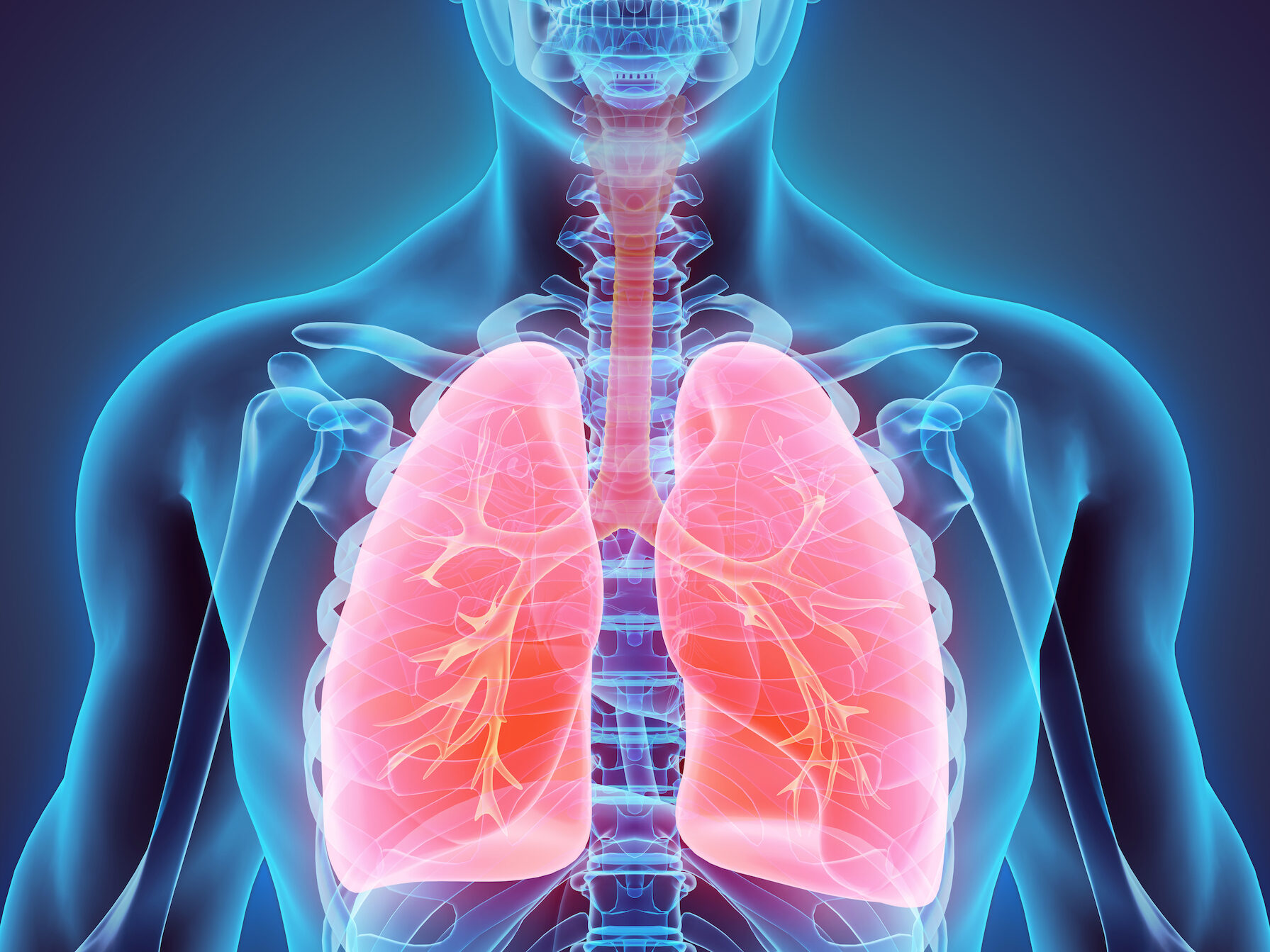Can Food Particles Enter Lungs
These smaller particles generally pass through the nose and throat and enter the lungs. You can also aspirate food that travels back up from your stomach to your esophagus.
Its usually a cognitive issue -- the person swallowing isnt fully awake or theyre distracted -- or it can be a physical problem where someone has a sensation or motor abnormality.

Can food particles enter lungs. Can enter our lungs. The particles lodge themselves into lung tissue triggering the release of inflammatory immune molecules into the bloodstream which carries them into the brain. At the bottom of the pharynx this pathway divides in two one for food the esophagus pronounced.
When food or a liquid enters the lungs it is called aspiration pneumonia 1 2 3. One passageway is for food the esophagus pronounced. Decay of radon atoms in the air gives rise to other radioactive atoms that are much more likely than radon to be.
Ih-SAH-fuh-gus which leads to the stomach and the other for air. Click here for an update from Probaway for coughs related to Covid Inhaling food or liquids can be very annoying and dangerous and its a good idea to learn this coughing technique for when you just happen to have a serious problem. These smaller particles can enter and deposit deep into your lungs and cause the most health effects said Stuart Batterman professor of environmental health sciences at.
A common cause might come from inhaling stomach acid or vomit or if food liquid or spit from your mouth accidentally gets into the airway and travels down into the lungs. I do not think any particle of food CAN enter the lung. Diffusion is one of the processes that allows this to happen.
If food or a nonfood item gets stuck along the way a problem may develop that will require a visit to a doctor. Some radioactive particles are exhaled and some remain in the lungs where the radiation they release strikes the lung tissue. Pulmonary aspiration is when you inhale food stomach acid or saliva into your lungs.
They start to degrade the blood-brain barrier and trigger the brains immune response Campen said. Even if you dont choke food that makes its way down the trachea into your lungs can lead to a very serious case of pneumonia. All of these things may.
The particles lodge themselves into lung tissue triggering the release of inflammatory immune molecules into the bloodstream which carries them into the brain. Sometimes when you try to swallow the swallowed substance goes down the wrong way and gets inhaled into your windpipe or lungs aspirated. Diffusion occurs when particles.
However the symptoms of food in the lungs are different. Vapours of foods yes but no particles. Foods may be able to enter the trachea which causes extreme violent coughings to bring them up.
Ih-SAH-fuh-gus which leads to the stomach and the other for air. When food drink or stomach contents make their way into your lungs they can damage the tissues there. Ive had a grain of rice coming out from my nose.
The damage can sometimes be severe. Most of the time people just cough when they have gotten something down their. The larger size of dust trapped inside the nostrils can be easily cleared and hence considered less dangerous whilst dust particles with smaller size can penetrate through the nostril and enter the lungs making it quite dangerous while breathing.
Anyway if in doubt consult your doctor. A major complication of aspiration is harm to the lungs. Dissolved or gaseous substances have to pass through the cell membrane to get into or out of a cell.
Once inhaled these particles can affect the lungs and heart and cause serious health effects in individuals at greatest risk such as people with heart or lung disease people with diabetes older adults and children up to 18 years of age. Aspiration also increases your risk of pneumonia. This is an infection of the lungs that causes fluid to build up in the lungs.
So why does this happen. The pharynx is part of the digestive system as well as the respiratory system because it carries both food and air. The size of dust particles vary and affect the lungs in variable degrees.
An important natural source of radiation exposure is the radioactive gas radon. This damage can cause. Eh-pih-GLAH-tus a small flap of tissue covers the air-only passage when we swallow.
While pulmonary aspiration or the inhalation of small particles is not a great concern and only causes short-term shortness of breath aspiration pneumonia caused by the inability to cough up the particles can cause an infection.
How Difficult Is It For Someone To Inhale Food Particles Into His Or Her Lungs Quora
How Can Food Get In Your Lungs Quora
.gif)
What Are The Effects Of Dust On The Lungs Osh Answers
What Happens With The Food That Goes Into The Lungs Quora

Germs In The Lungs Or Airways How Deadly Is Aspiration Pneumonia Aspiration Pneumonia Pneumonia Health World

Sanjay Mukhopadhyay On Twitter 18 One Of The Most Classic Aspirated Particles In This Disease Is The So Called Lentil It S Essentially A Legume Which For Some Reason Is Aspirated A Lot And

Mini Handheld Nebuliser Portable Steam Inhalers In 2021 Nebulizer Asthma Treatment Inhaler

The Effects Of Poor Dental Hygiene On Your Body Infographic Dental Health Dental Hygiene School Dental Hygiene

Billions Of Air Pollution Particles Found In Hearts Of City Dwellers Air Pollution Pollution Environmental Research

Aspiration Pneumonia What You Need To Know

Intelligent Portable Nebulizer In 2021 Nebulizer Ipratropium Bromide Nebulizer Machine

Lipid Mediated Innate Lymphoid Cell Recruitment And Activation In Aspirin Exacerbated Respiratory Disease Annals Of Allergy Asthma Immunology
What Happens If A Grain Of Rice Falls Into Or Enters My Lungs Quora

Microplastics In Lungs Inhaling Plastic Particles Plastic Health Coalition
Bronchiectasis Causes Symptoms Treatment Prevention

Ask The Expert What Should We Eat During The Haze Season To Stay Healthy Healthworks Malaysia How To Stay Healthy Superfood Guava Juice

Since They Are So Small And Light Fine Particles Tend To Stay Longer In The Air Than Heavier Particles This Increa Sulphur Dioxide Water Droplets Power Plant



Post a Comment for "Can Food Particles Enter Lungs"